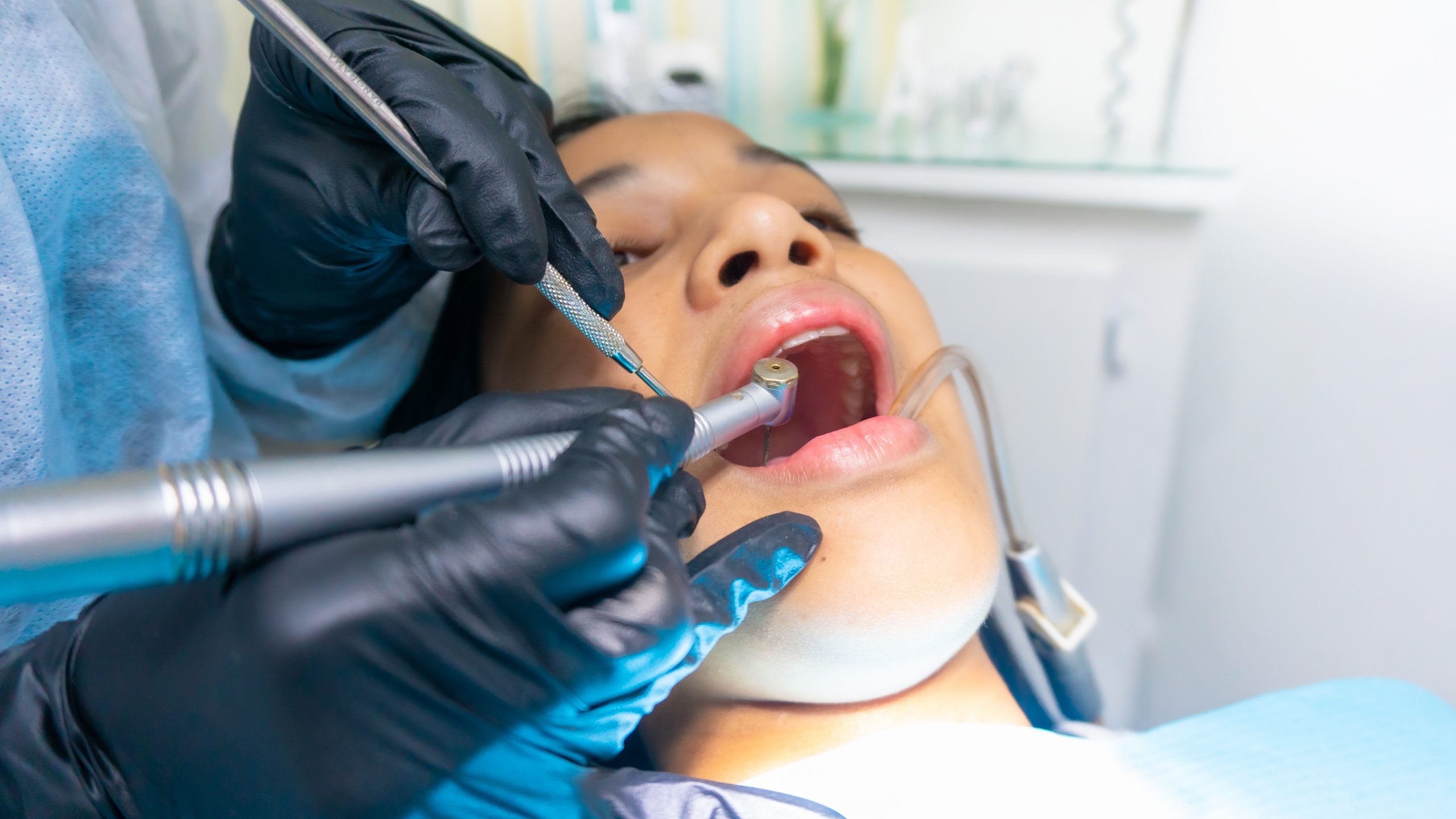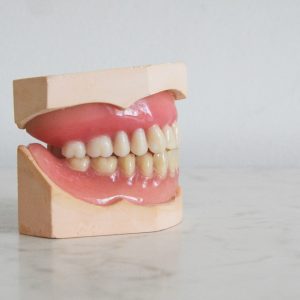So, you’re dealing with tooth pain when biting down on crown, and you want to know whether the pain is normal or not? You’ve come to the right place.
Dental crowns are a common restorative solution to protect and strengthen damaged teeth, but experiencing tooth pain when biting down on crown can be a concerning and uncomfortable issue for many patients.
In this informative piece, we will delve into the potential reasons behind tooth pain when biting down on crown, exploring both normal reasons, and reasons that may be indicative of a more serious problem.
Understanding the nuances of this situation can empower you to make informed decisions about your dental health and seek timely professional advice when necessary. Whether you have just received a dental crown or have had one for a while, it’s completely normal to be concerned about tooth pain when biting down on crown.
Dental crown pain can range from mild pain/mild discomfort to more serious pain/discomfort. It can affect the back teeth, front teeth, lower teeth, and upper teeth. Depending on the dental crown problem, a crown replacement may be needed…or, a more serious intervention may be needed.
Let’s delve into some of the lesser serious issues that could be causing tooth pain when biting down on crown:
Lesser Serious Issues of Tooth Pain When Biting Down on Crown
Poor Bite Alignment
Crowns are an exact science, customized exactly to be in complete alignment with your natural teeth while biting and chewing. If, for whatever reason, your crown is not totally aligned with your teeth, an uneven bite can result. This misalignment can lead to excessive forces being exerted on the crowned tooth, causing pain and discomfort when pressure is applied during biting. The uneven distribution of forces can result in excessive stress on the crown, the underlying tooth structure, or even the surrounding teeth, potentially leading to pain, sensitivity, and discomfort. If this is the case, your dentist will need to adjust or replace your crown with a crown procedure.
Crown is Too High
If the crown is too high compared to the surrounding teeth, it could lead to a dental condition called “occlusal interference.” In layman’s terms, this means that the crown hits the opposing tooth before the others, causing pain and discomfort when biting down. The reason for the pain is due to the increased pressure on the underlying tooth and its supporting structures. Additionally, the excessive force on the high crown can cause trauma to the surrounding teeth, potentially leading to further complications. If this is the case, your dentist will need to adjust or replace your crown.
Cracked or Fractured Tooth
Another common reason for tooth pain when biting down on crown is a cracked or fractured tooth. Teeth can crack or fracture for a wide variety of reasons, but one of the most common reasons is biting down on something hard. When a dental crown is placed over a tooth, it is meant to provide protection and reinforcement to a damaged or weakened tooth structure. However, if the underlying tooth has a crack or fracture, the biting forces applied during chewing can exert additional stress on the compromised tooth structure.
This can lead to sharp pain or discomfort when biting down on the crown. The crack or fracture may further propagate or worsen due to the increased pressure, causing heightened sensitivity and pain. In such cases, it is essential to diagnose and address the underlying tooth condition promptly, as it may require additional treatment, such as root canal therapy or even tooth extraction, to alleviate the pain and restore oral health effectively. Dental x-rays may also be needed to assess the severity of the crack/fracture.
Nerve Sensitivity
If you are experiencing sharp, shooting tooth pain when biting down on crown, this may be due to nerve sensitivity. Teeth contain nerves within the dental pulp, which can become sensitive due to various reasons such as enamel erosion, gum recession, or exposed dentin. When a dental crown is placed over a tooth, it can alter the dynamics of the bite and increase the pressure on the underlying affected tooth structure. If the nerves are already sensitive or if the tooth has a traumatized nerve, this heightened pressure can trigger pain and discomfort when biting down. Managing nerve sensitivity may involve treatments such as desensitizing agents, dental sealants, or adjustments to the crown to alleviate the pain and restore comfort during biting and chewing.
Crown Improper Fit
Tooth crowns are meant to fit properly and snugly on your tooth. In fact, the crowning process is an exact science. If a crown is not fitted properly, it can result in gaps and spaces in between the tooth and the crown. Gaps and spaces are a bad, bad thing! Why? Well, they can trap food particles and bacteria, leading to irritation, inflammation, and tooth pain when biting down on crown. If this is the case, your dentist will need to assess the crown fit and make adjustments or replacements in order to help relieve your pain.
Gum Tissue Recession
It may seem strange, but poor gum health can actually cause tooth pain when biting down on crown. Over time, and due to a variety of different factors (such as gum disease or poor brushing habits), your gums can recede. If your gum recedes around the crowned tooth, those root surfaces become exposed. Typically, root surfaces of a tooth are more sensitive than tooth enamel.
If a dental crown is placed on a tooth, and the surrounding gums have receded, it can result in direct contact between the crown and the exposed root surface during biting. This contact can cause heightened sensitivity and discomfort, as the root surfaces lack the protective enamel layer. The pressure applied during biting can irritate the exposed roots, leading to sharp pain or sensitivity. Additionally, gum recession can expose the cementum, a sensitive layer covering the roots, making the tooth even more susceptible to pain. Addressing gum recession through gum grafting or other appropriate treatments can help alleviate the discomfort and restore oral health.
Fractured or Cracked Crown
Similar to a tooth being able to become fractured or cracked, a crown can also become fractured or cracked due to factors like trauma, grinding, or biting on hard foods. This can range anywhere from hairline fractures to full-on cracks. A fractured crown can create irregular or sharp edges that irritate the surrounding tissues, causing tooth pain when biting down on crown. Additionally, a damaged crown may not distribute biting forces evenly, resulting in excessive pressure being exerted on specific areas of the underlying tooth. This can lead to pain and sensitivity when biting down. It is important to address a fractured or damaged crown promptly to prevent further complications and restore comfort during biting and chewing. This will likely involve repairing the existing crown or installing a new crown, depending on the severity of the fracture.
Allergic Reaction
Having an allergic reaction to your crown is rare, but it can sometimes be the cause of tooth pain when biting down on crown. Some individuals may be allergic to different materials that compromise the crown, such as ceramics, metal alloys, or other materials. If a person is allergic to any component of the crown, it can lead to inflammation, discomfort, and pain in the surrounding tissues when biting down. The allergic reaction may cause gum sensitivity, redness, or swelling, making it painful to exert pressure on the crown. If an allergic reaction is suspected, seeking immediate dental care is necessary to address the issue and alleviate the associated tooth pain.
More Serious Issues of Tooth Pain When Biting Down on Crown
While tooth pain when biting down on crown is typically not life-threatening, it can indicate serious underlying issues that require immediate attention. Here are six potentially severe reasons for tooth pain when biting down on crown in such cases:
Tooth Abscess
Tooth infections can start off small and innocent, but they can turn into something very serious: a dental abscess. When bacteria penetrate the tooth’s pulp chamber, often due to deep decay or a cracked tooth, an infection can develop. Over time, this infection can spread to the surrounding tissues, leading to an abscess. A dental abscess is a pocket of pus formed by the body’s immune response. When pressure is applied during biting, the infected tooth and the underlying tissues can cause patients a significant amount of pain.
In addition to intense pain, symptoms may include swelling, redness, and a foul taste or odor. The danger lies in the potential spread of infection beyond the damaged tooth and jawbone, affecting nearby structures like the sinuses or even causing systemic complications. If left untreated, the tooth infection can lead to severe consequences, such as bone loss, tooth loss, or the need for more invasive treatments like root canal therapy or tooth extraction. Seeking immediate dental attention is crucial to treat the infection, alleviate the pain, and prevent further complications.
Tooth Decay
Decay in part of the tooth can contribute to tooth pain when biting down on a crown. When a dental crown is placed over a tooth, it is intended to protect and strengthen the underlying tooth structure. However, if the tooth is affected by infection or decay, it can lead to inflammation and damage within the tooth, causing sensitivity and pain. When pressure is applied during biting or chewing, the infected or decayed tooth may become further irritated, triggering heightened discomfort. Additionally, the presence of infection or decay can compromise the structural integrity of the tooth, making it more susceptible to pain and sensitivity. Prompt dental evaluation and treatment, such as addressing the signs of infection infection or decay, may be necessary to alleviate the pain and restore the tooth’s health.
Root Fracture
Tooth pain when biting down on crown can be caused by a root fracture, which poses significant danger to oral health. What is a root fracture? Well, a root fracture occurs when the root of a tooth is cracked or broken, typically due to trauma, grinding, or weakening of the tooth structure. When pressure is applied during biting, the fractured root can cause sharp, intense pain. The pain may be localized to the specific tooth roots or radiate to the surrounding areas.
In addition to the persistent pain and discomfort, a root fracture can lead to infection as bacteria can enter through the fracture site. Furthermore, the fracture may compromise the stability of the tooth, making it more susceptible to mobility or even tooth loss. Prompt dental evaluation and treatment are crucial to address the root fracture, alleviate the pain, and prevent further damage to the tooth and surrounding structures. In some cases, a root canal procedure or tooth extraction may be necessary to resolve the issue effectively.
Necrosis (Tooth Death)
Though it’s rare, some tooth pain when biting down on crown can be caused by necrosis. Necrosis refers to the death of dental pulp tissue within the tooth. This can occur due to various factors such as extensive decay, trauma, or untreated infection. When the pulp tissue becomes necrotic, it can cause a lot of pain when pressure is applied during biting. The severe pain may be accompanied by sensitivity, swelling, and foul odor.
Necrosis can weaken the tooth structure, making it more prone to fractures or further damage. If left untreated, necrosis can result in tooth loss and the spread of infection to surrounding tissues or even systemic complications. Seeking immediate dental attention is crucial to address the necrosis, alleviate the pain, and prevent further detrimental effects on oral health. Treatment options may include root canal treatment or tooth extraction, depending on the extent of the necrotic tissue and the condition of the tooth.
Oral Cancer
Although rare, tooth pain when biting down can be a symptom of oral cancer. Oral cancer refers to the abnormal growth of malignant cells in the oral cavity, including the lips, tongue, gums, and throat. Tooth pain associated with oral cancer may arise when the tumor affects the surrounding tissues or nerves, leading to discomfort during biting. Other symptoms may include persistent mouth sores, difficulty swallowing, changes in voice, and unexplained bleeding.
The danger of oral cancer lies in its potential for aggressive progression and metastasis to other parts of the body if not diagnosed and treated promptly. Late-stage oral cancer can lead to severe complications, including difficulty eating, speaking, and breathing. It is crucial to seek immediate dental and medical attention if oral cancer is suspected, as early detection greatly improves the chances of successful treatment. A thorough examination, including biopsies and imaging, is necessary to confirm the diagnosis and establish an appropriate treatment plan, which may involve surgery, radiation therapy, and chemotherapy.
In Conclusion
In conclusion, experiencing tooth pain when biting down on a dental crown may or may not be normal, depending on various factors that accompany your symptoms. Some level of sensitivity and discomfort can be expected immediately after the crown placement, but this should subside with time. It’s important to remember that while these conditions can be serious, not all cases of tooth pain related to a crown indicate a life-threatening situation.
However, persistent or worsening pain, accompanied by other symptoms like swelling or altered bite, could indicate potential issues that require prompt attention from a dentist. Remember, early intervention is crucial to prevent further complications and ensure the long-term success of your dental crown. If you are facing any concerns or doubts about your crown, do not hesitate to schedule a visit to your dentist. They can examine the crown, assess the surrounding teeth, and determine the appropriate treatment to alleviate the pain. In the event that your dentist finds nothing wrong, here are some simple measures you can take for temporary relief of minor pain:
- Avoid Harsh Brushing: depending on what’s causing your pain, this could be the right solution to solving your tooth pain when biting down on crown.
- Take Pain Medication such as an Over The Counter Pain Reliever: though this won’t fix the source of your pain, it will help provide your sensitive teeth with some temporary relief.
- Rinse Out Your Nasal Sinuses with Distilled Warm Water: even if you don’t have a sinus infection, rinsing out your nasal sinuses can help alleviate some pressure in your teeth. Because of the nasal sinus’s close proximity to the tooth roots.
- Avoid Cold Temperatures and Cold Foods: this is the best way to avoid exacerbating your existing tooth pain when biting down on crown, as cold foods often make both nerve and tooth pain much worse.
- Gargle with Warm Water and a Teaspoon of Salt: this is an easy fix to make your mouth feel better, quickly. The warm salt water will both soothe your mouth and distract you from the discomfort you are feeling.
If you have met with your dentist and/or other medical professional, and they’ve ruled out anything serious, you may be struggling with hypochondria. Hypochondria is defined as abnormal anxiety about one’s health, especially with an unwarranted fear that they have a serious medical condition. If you think you may be a hypochondriac, we recommend that you check out some of our below articles to help you on your journey:
- What Are Some of the Most Common Hypochondriac Symptoms?
- 10 Proven Ways to Beat Your Hypochondria
- How Do I Find a Therapist for Hypochondria?
Disclaimer: THIS WEBSITE DOES NOT PROVIDE MEDICAL ADVICE.
If you are currently experiencing medical concerns, it’s important to talk to a doctor to rule out any underlying medical conditions. HypochondriacHQ does not substitute professional medical advice or consultations with healthcare professionals. Never disregard professional medical advice or delay in seeking it because of something you have read or seen on this website.




